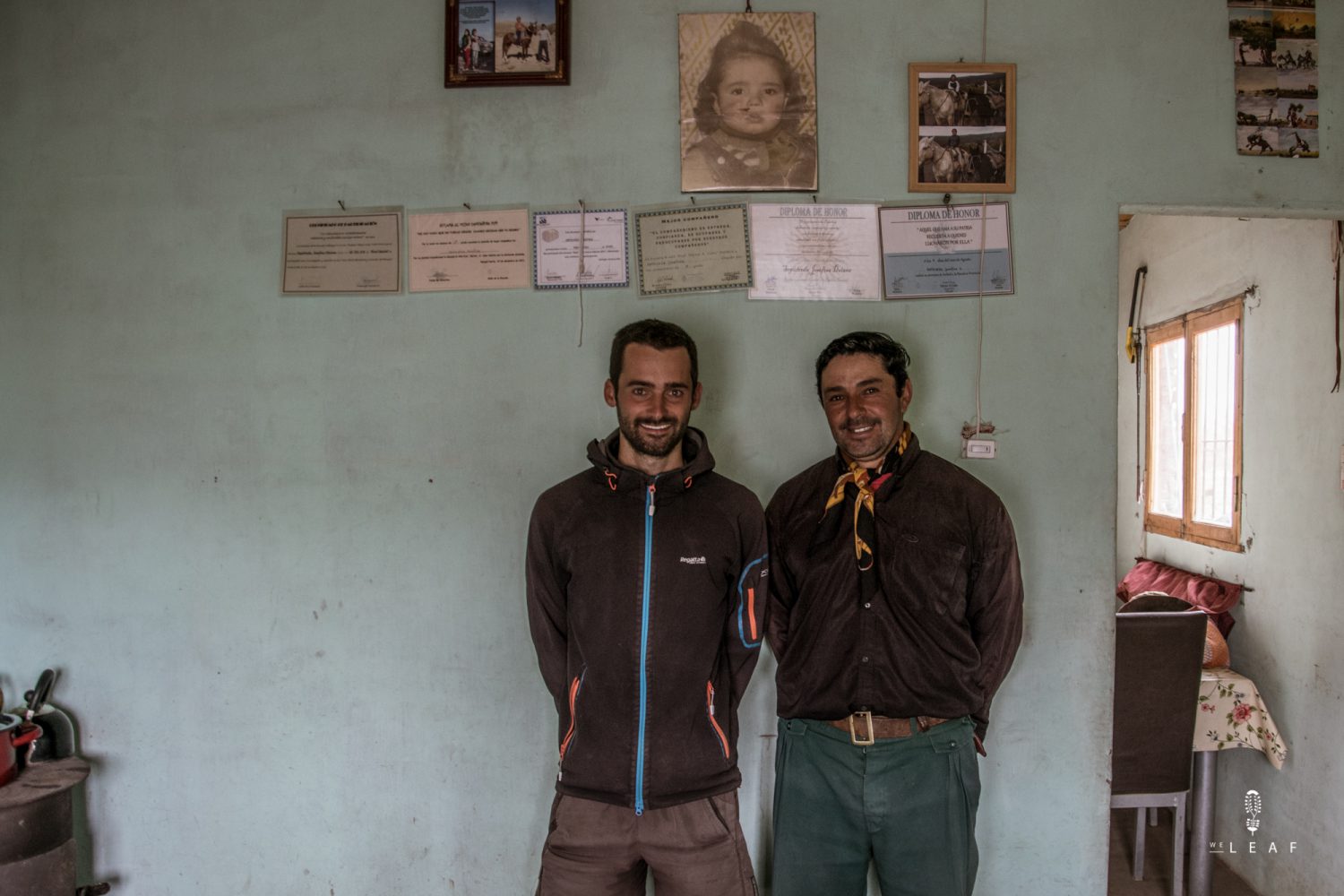
Ruta 40
October 24, 2017
Ten seasons in one day
November 12, 2017A local goat farmer
His horse is waiting paitently in his garden and the dogs bark to announce that some strangers are walking around. Gaucho Dario Sepulvada receives us as if it looks normal for him to talk with cyclists. He lives remotely, but still next to the touristic Ruta 40, the Route 66 of Argentina that crosses the country from north to south along the Andes. He and his brother are the youngest in a family with ten children and the only leftovers who continue the family traditions. With only three little house they are a small settlement about 50 kilometers from the nearest civilization. His wife can give birth any moment and is already a couple of days in the city to be close enough to the hospital.
A strong Patagonian storm hits the mountains around Dario's house these days, and the last night learned us that the loose soil doesn't hold our tent. We put our tent in his handmade garage and enter the house with a windswept head. The house is remarkablely simple and neat. There is no abundancecy of useless things and everything is at the right place. The maté is served with elegance and the metal straw is cleaned with a cloth after every sip. He doesn't has electricity so there is no fridge, washing machine or television. Since a couple of years he has a solar panel which just provides enough for the lights.
When we tall that the climate change also effects the Netherlands he reacts surprised that 'global warming is working on a global scale'
Dario talks about his simple, harsh, but also satisfying life and listens intently when we talk about 'the world'. Every morning his rides with his horse into the mountains to check his goats which are running around free. In October he has to earn his money for the rest of the year. The goats give birth once a year and after two months the little goats, chivitos, are sold to slaughterhouse, his earnings. In a successful year he earns €30 on every goat he sells, around 300 in total. In the past they also sold the skin, but nowadays people aren't interested anymore. He says the climate changed extremely the last years. In the past it snowed every year which provided enough fresh grass for a year, but now it only snows every five years and they have to go high up in the mountains to find good grass for the goats and the horses. When we tall that the climate change also effects the Netherlands he reacts surprised that 'global warming is working on a global scale'. He asks about pur open borders and likes to know how life goes in our small countries.
When he stands with his legs crossed and hands in his pockets, surrounded by the dogs, we feel this moment is unique. A portrait this well dressed and charming Gaucho. What a culture, still existing in our civilised world, and what an honour the meet the smile behind the basic lifestyle so close.





